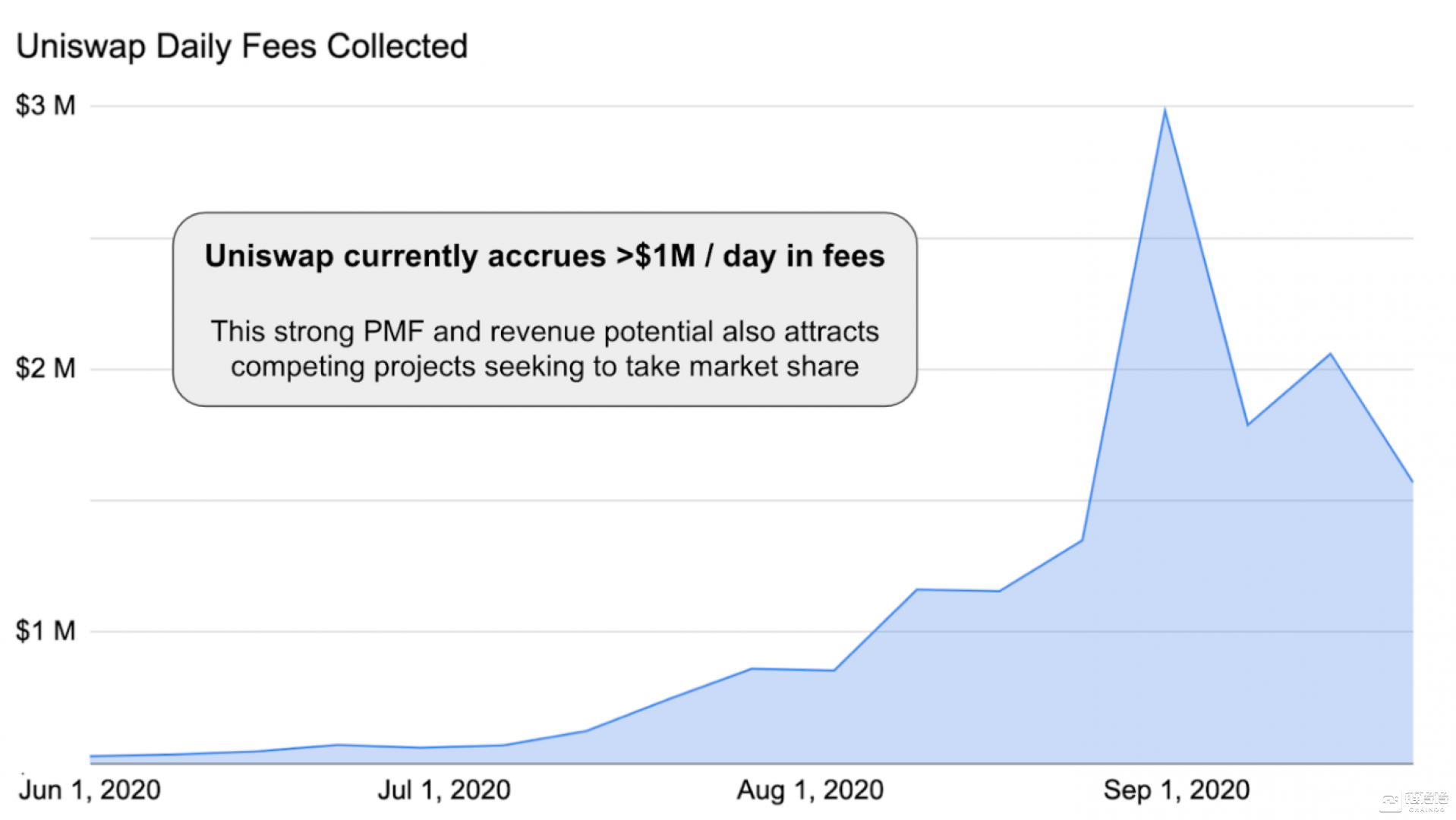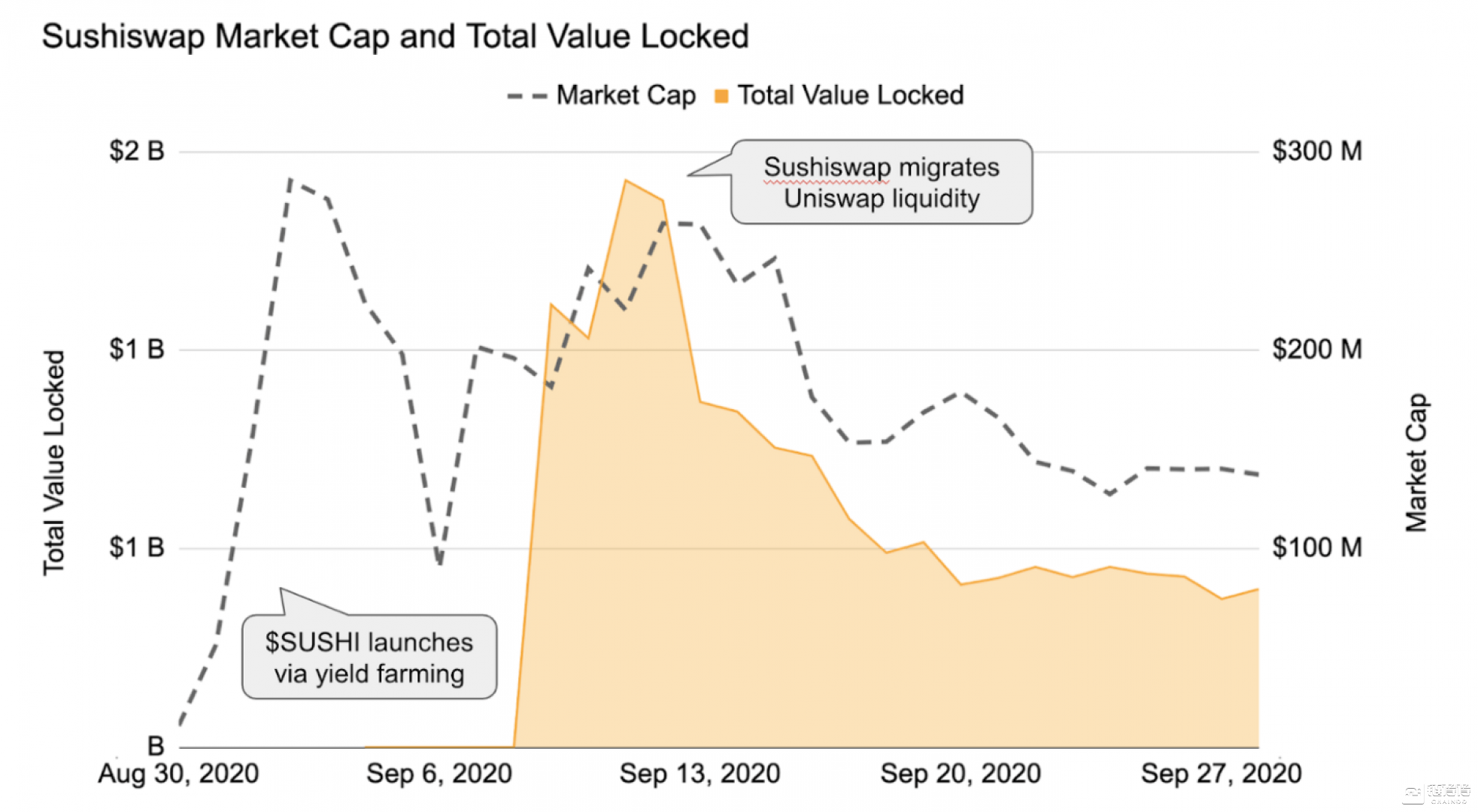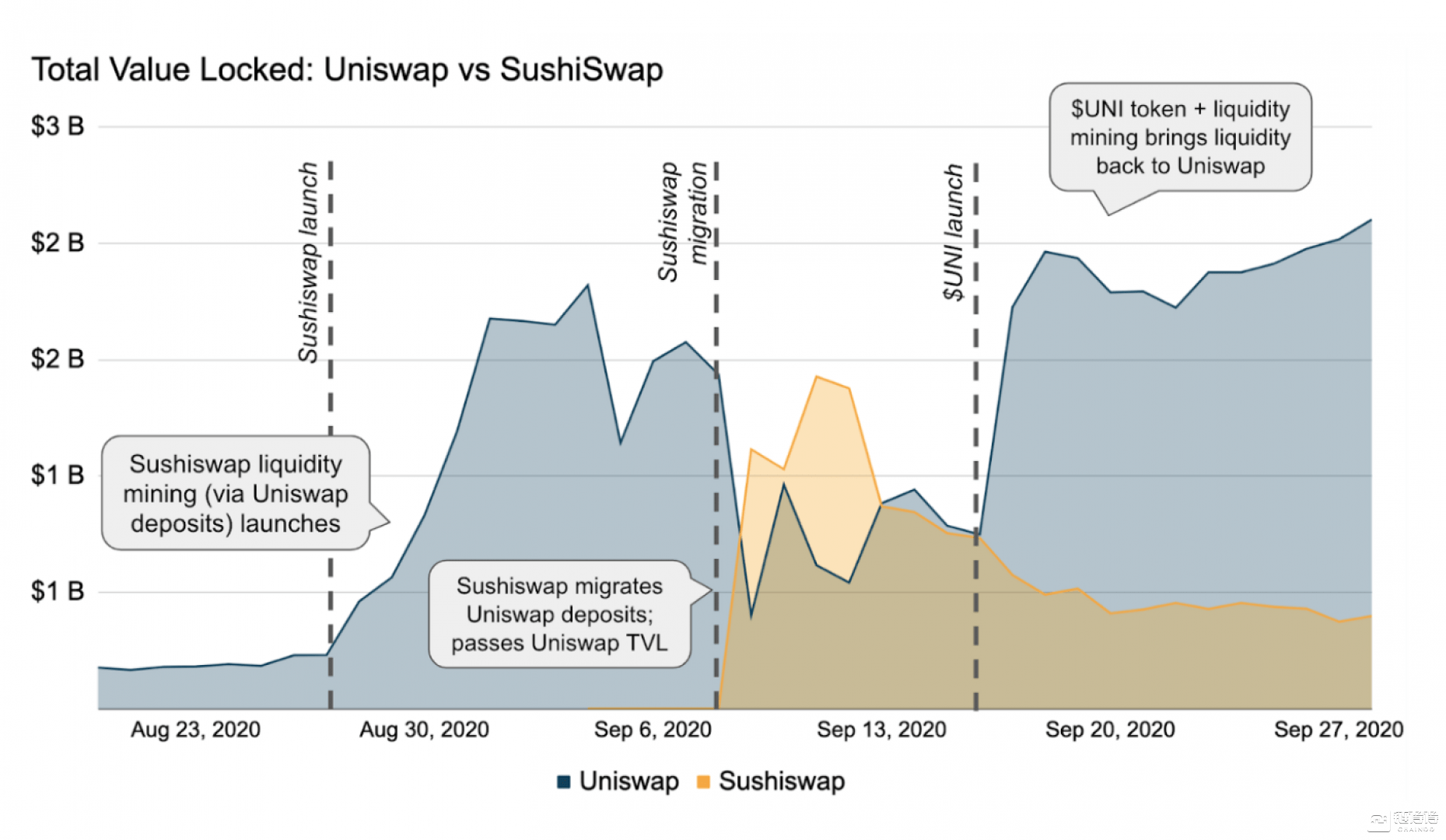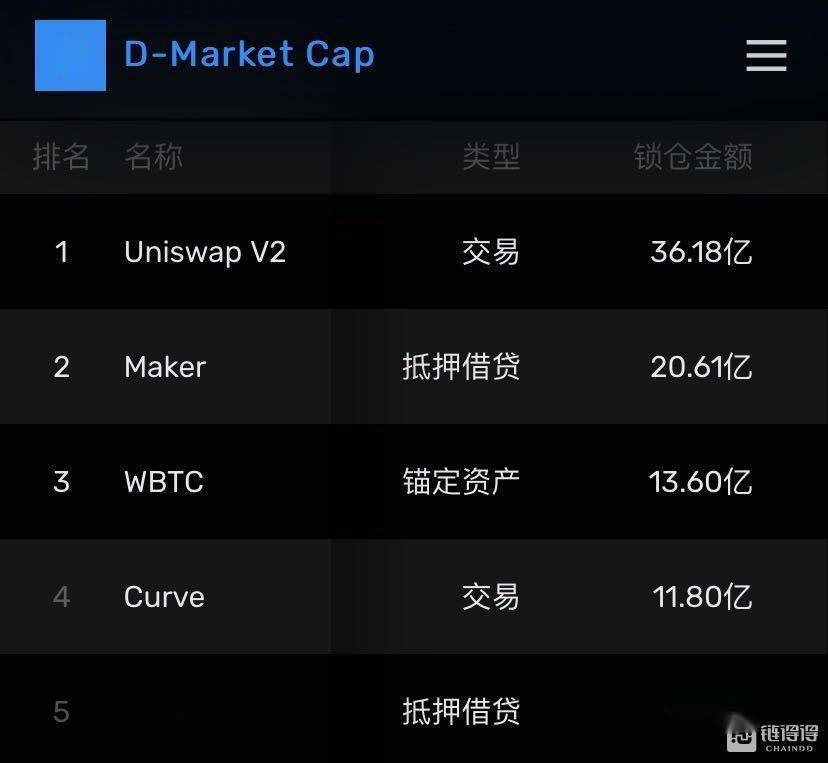Sushiswap vs Uniswap: The Dawn of the DeFi Protocol War
This article was published on the Coinbase blog by Justin Mart and compiled by ChainDedede, translated by Shirley.
Introduction: "Around the Block" is a content column launched by the well-known cryptocurrency exchange Coinbase, aimed at interpreting key issues in the crypto space. In this issue, author Justin Mart will discuss the "DeFi Protocol Wars" and other important topics.
Blockchain-based applications are inherently open and transparent. This is beneficial because anyone can inspect the project and ensure everything is functioning normally. However, it also brings some side effects. Since the source code is public, it facilitates the copying of existing projects (or "forking"), allowing people to modify some aspects and launch a competing platform.
As the DeFi ecosystem gradually matures, some projects begin to enjoy strong product and market demand, generating real revenue streams. Undoubtedly, the community is fully responding to the impacts brought by the "protocol wars," where anyone has the ability to fork a successful project and attempt to capture its market share.
The First Protocol War: Sushiswap vs Uniswap
In late August, a group of anonymous developers suddenly launched Sushiswap, marking the beginning of this "war." This new decentralized exchange (DEX) is almost a replica of Uniswap, with one exception: Sushiswap will add SUSHI as a governance token (holders can vote on proposals and changes to the platform) and will take 0.05% (5 basis points) of the total trading volume on the platform.
The addition of the SUSHI token is not groundbreaking, but Sushiswap believes its model provides better incentives for liquidity providers (LPs). If this is true, Sushiswap will attract more liquidity than Uniswap, leading to better trade execution for traders and ultimately generating more trading volume. The current market is quite substantial, with Uniswap earning over $1 million in fees daily (mainly paid to liquidity providers). At the same time, this enormous potential profit has attracted other competing projects to join in, aiming to capture market share.

(Data source: Dune Analytics)
But there is another issue. Sushiswap not only views liquidity mining as a fair token distribution mechanism but also as a clever way to transfer Uniswap's liquidity to Sushiswap. Its mechanism works as follows:
Choose a Uniswap liquidity pool to provide liquidity (such as ETH or USDC) and receive "Uniswap-LP-Pool-Tokens," which represent your share of liquidity in those pools;
Deposit those "Uniswap-LP-Pool-Tokens" into the Sushiswap contract (or "stake" them), after which Sushiswap will proportionally distribute SUSHI tokens, which is also how SUSHI enters the market;
At a specific future moment, Sushiswap's smart contract will convert all staked "Uniswap-LP-Pool-Tokens" into "Sushiswap-LP-Pool-Tokens," redeeming all assets staked in the Uniswap pool and depositing them into the same liquidity pool on Sushiswap.
Ultimately, Uniswap's liquidity will be automatically transferred to Sushiswap, driven by users hoping to receive SUSHI token rewards proportionally. This is a comprehensive liquidity war that not only effectively guides a new DEX into the market but also weakens the existing "ruler."
What Happened?
In short, nearly $2 billion worth of "Uniswap-LP-Pool-Tokens" were deposited into Sushiswap's smart contract, earning SUSHI tokens for their holders. The annual percentage yield (APY) for Sushiswap stakers providing liquidity sometimes even exceeded 1000%, greatly propelling this trend. Meanwhile, supported by such substantial deposits, SUSHI began to list and trade on some decentralized and centralized exchanges, rapidly appreciating to a market cap of $300 million.

(Data source: defipulse)
However, everything began to unravel in the following week. As more and more SUSHI tokens were minted for liquidity miners, its price started to plummet, prompting some to quickly withdraw, leading to massive sell-offs. The price drop prompted the project's anonymous chief developer ("Chef Nomi") to sell $14 million worth of SUSHI tokens, hoping to secure long-term funding. However, this move was a blow to the community and betrayed the trust people had in him (as Chef Nomi had previously promised not to sell any tokens), resulting in his ousting from the project.
Afterward, Chef Nomi apologized and completed a $14 million SUSHI token buyback on September 15. But the damage was already done. Although Sushiswap successfully transferred Uniswap's liquidity and relaunched the exchange, the initial vitality and enthusiasm had diminished. It is commendable that the Sushiswap project now has its own goals, hoping to integrate with blockchains like Solana and plan its development path.
Meanwhile, Uniswap did not stop its counterattack. The lack of a native token had become a disadvantage, and upon realizing this, on September 17, Uniswap launched its governance token UNI and quickly airdropped approximately $1,000 worth of UNI to previous users as a reward for their past contributions and long-standing loyalty. Additionally, the remaining UNI tokens will be distributed through liquidity mining.

(Data source: Coinbase)
Today, Sushiswap maintains $300 million in locked value, $40 million in daily trading volume, and a market cap of $100 million. For a project that is only a month old, this is a decent achievement, but it still pales in comparison to Uniswap. According to data from ChainDedede's DeFi product D-Market Cap, as of the time of writing, Uniswap currently has approximately $3.6 billion in locked value, $300 million in daily trading volume, and a market cap of $300 million, making it the winner of this war.

Other Participants
After Sushiswap initiated this movement, other projects also joined in. Here are a few representative projects:
Swerve and its fork project Curve;
C.R.E.A.M. and Compound and Balancer;
YAM, BASED, and Ampleforth.
All these "struggles" have occurred over the past two months, with varying degrees of success. Notably, although these forked projects have not surpassed the original projects, each is finding ways to survive, carve out its development path, and optimize products to adapt to this market through its community.
Protocol Wars and the Future of DeFi
If Sushiswap succeeds, another project will inevitably replace it in the same manner, but currently, Sushiswap cannot surpass Uniswap. This indicates that achieving victory in an open market may require true differentiation. Coincidentally, Sushiswap's new roadmap reveals more ambitious plans that may bring about the necessary differentiation.
A deeper implication is that the switching costs in the DeFi space may be much higher than expected. While copying code is simple, you cannot replicate a community, a brand, a trust, or broader integrations and mindshare. Other considerations include:
- Fairly launched liquidity mining may not achieve long-term growth.
The "protocol wars" between projects are realized by directly distributing most (sometimes all) tokens to the protocol's users. However, long-term sustainability requires long-term incentives. Once the token distribution is complete, how will developers be incentivized to continue building? Over time, can the community correctly guide these nascent protocols? There may be many possible answers to these questions, but it is still unclear.
- Community governance will be a challenge.
Decentralized projects adopting token-based governance models are a new construct and may bring many trade-offs. The projects participating in the "protocol wars" exacerbate this situation, as these projects are newly defined and need to rapidly form communities to succeed. Therefore, they are likely to attract short-term stakeholders who cannot collaborate long-term.
- Achieving wealth or democracy?
In the case of Sushiswap, there were rumors that a large foundation was involved and invested millions of dollars, which would give it considerable SUSHI tokens, enough to exert strong control over the protocol's future. Many implications are contained within this, but these projects are likely to achieve wealth rather than democracy.
- Anonymity has its "dark side."
Many project founders are anonymous, which has its pros and cons: it allows anyone in the world to contribute and own a share of a new protocol, but it also potentially enables bad actors to create malicious projects, launching scams through a hidden backdoor after stealing all funds.
Ultimately, these "forked" projects must quickly establish communities and showcase their excellent products, with confidence in surpassing their existing competitors. This bodes well for the future of DeFi. It means that founders who build unique projects and strive to lead within their communities will be able to withstand the attacks of the protocol wars and ultimately encourage more people to create new projects, driving DeFi forward.


























